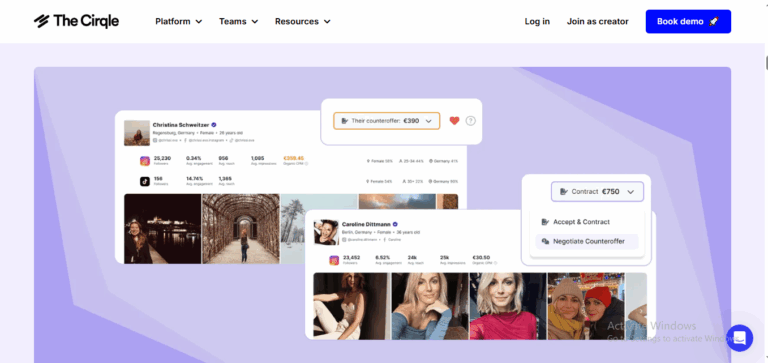Yo, influencer fam! If you’re on the lookout for the best platforms to amp up your influencer game, you’ve hit the jackpot. Today, we’re diving deep into 29 killer alternatives to The Cirqle for 2025. Whether you’re just starting out or a seasoned pro, this list will have something for you. I’ve ranked them based on experience, features, and prices—keeping it fun and digestible, with just enough deets to help you decide which platform is your vibe. Let’s get into it!
1. Mavrck
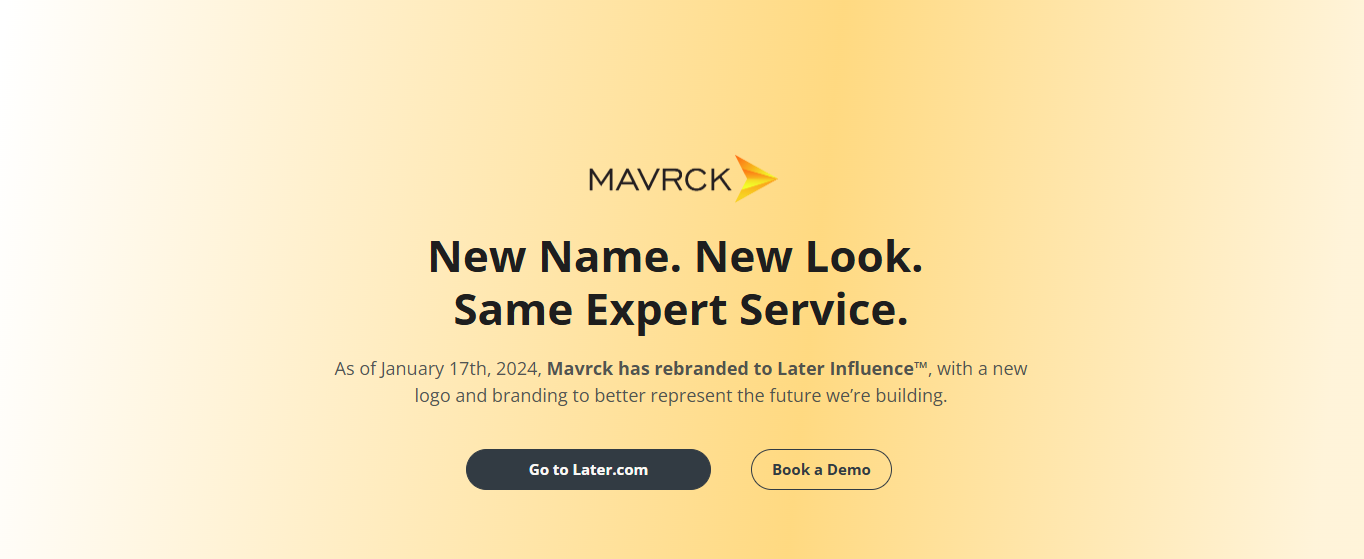
What I Liked:
Mavrck is like the Swiss army knife of influencer platforms. It’s got everything—automated workflows, robust analytics, and an influencer discovery engine that’s next-level. I love how easy it is to create campaigns, track performance, and manage your partnerships. Plus, they work with some pretty big names in the industry, so if you’re trying to scale, Mavrck’s got your back.
What I Didn’t Like:
Honestly, the only downside is the pricing. It’s not exactly cheap, especially if you’re just starting out. But, if you’ve got the budget and need those enterprise-level tools, it’s worth it.
Core Features:
- Influencer discovery & automation
- Campaign management tools
- Analytics & reporting
- Scalable for big brands
Pricing:
On the pricier side, but for bigger campaigns, it’s definitely worth it.
2. The Influencer Room
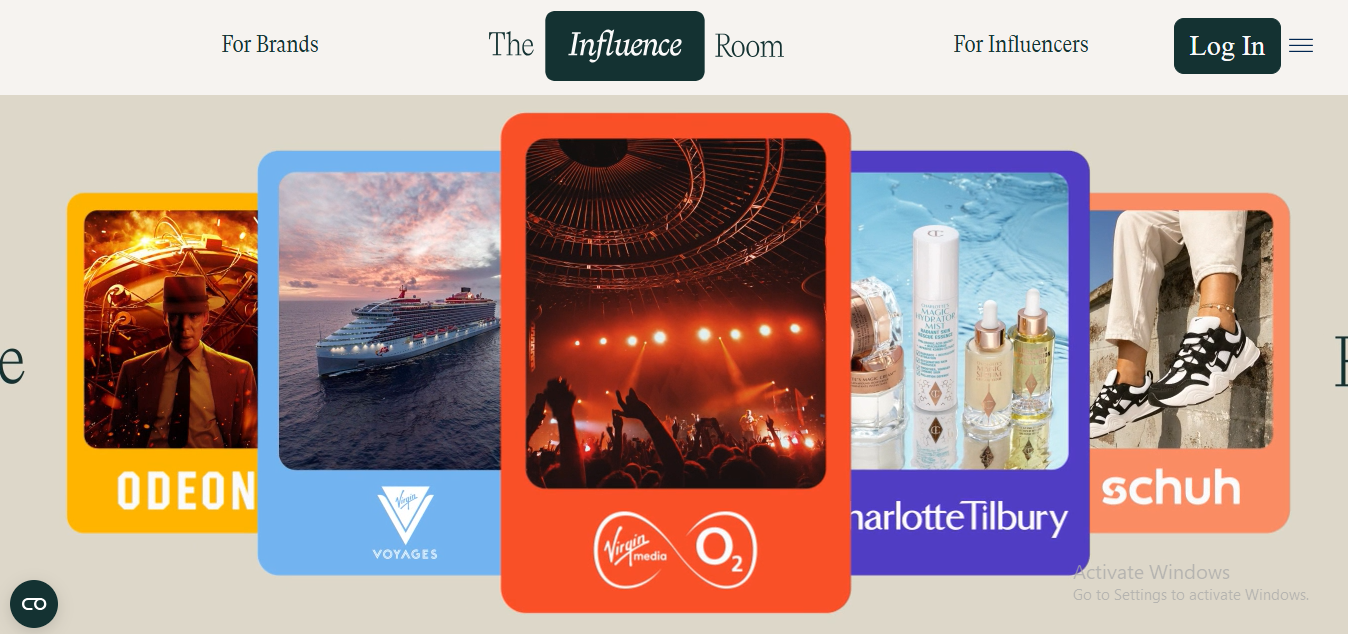
What I Liked:
If you’re all about exclusivity, The Influencer Room is where it’s at. They focus on high-quality influencers and offer a more personalized touch. The interface is sleek and easy to use, and their support team is super responsive. Great for premium brands looking for a boutique experience.
What I Didn’t Like:
The platform feels a bit niche. If you’re not in the high-end market, it might not be for you. Plus, it’s a bit more manual compared to some of the more automated platforms out there.
Core Features:
- Influencer matchmaking
- Personal account managers
- High-quality influencer pool
Pricing:
Premium pricing, but for that tailored, boutique service, it’s reasonable.
3. GRIN
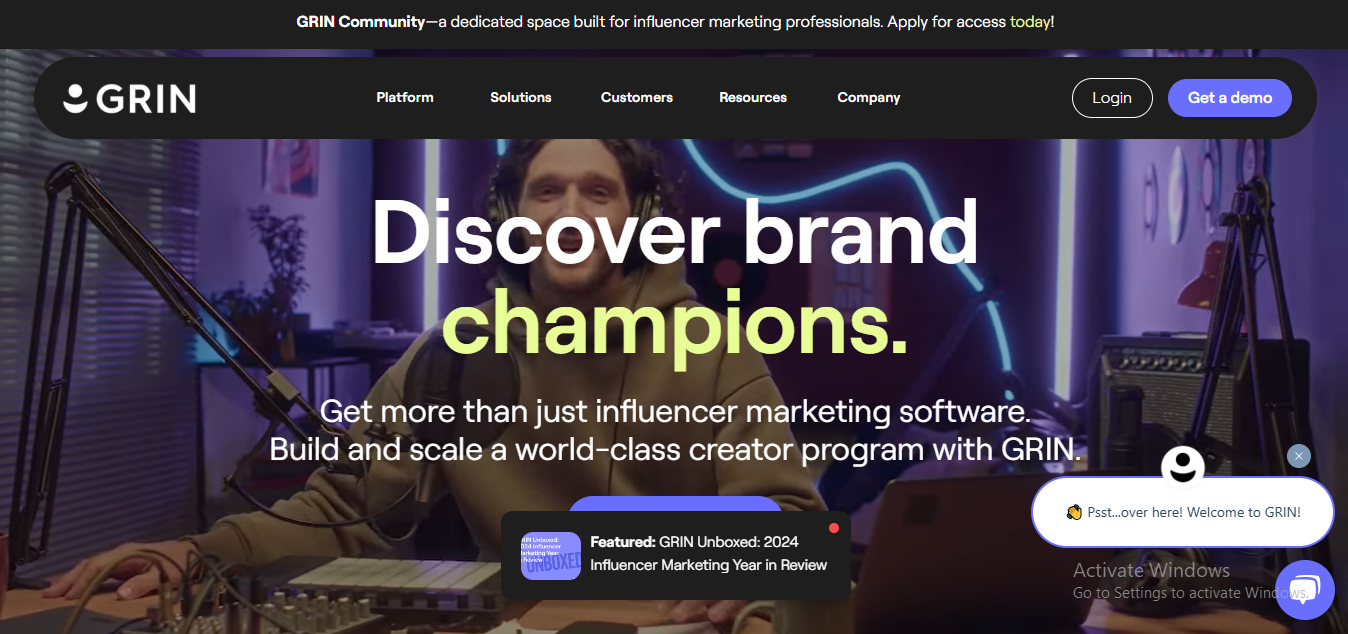
What I Liked:
If you need a no-frills, user-friendly platform to manage influencer marketing, GRIN’s your go-to. It’s got a seamless interface, and the integration with eCommerce platforms is on point. I love how easy it is to manage multiple campaigns and track influencer performance in real-time.
What I Didn’t Like:
The learning curve is a little steep for beginners, especially if you’re new to influencer marketing. But once you get the hang of it, it’s smooth sailing.
Core Features:
- E-commerce integrations (Shopify, Magento)
- Real-time tracking
- Influencer relationship management (IRM)
Pricing:
A bit on the higher side, but totally worth it for eCommerce brands.
4. Influencity
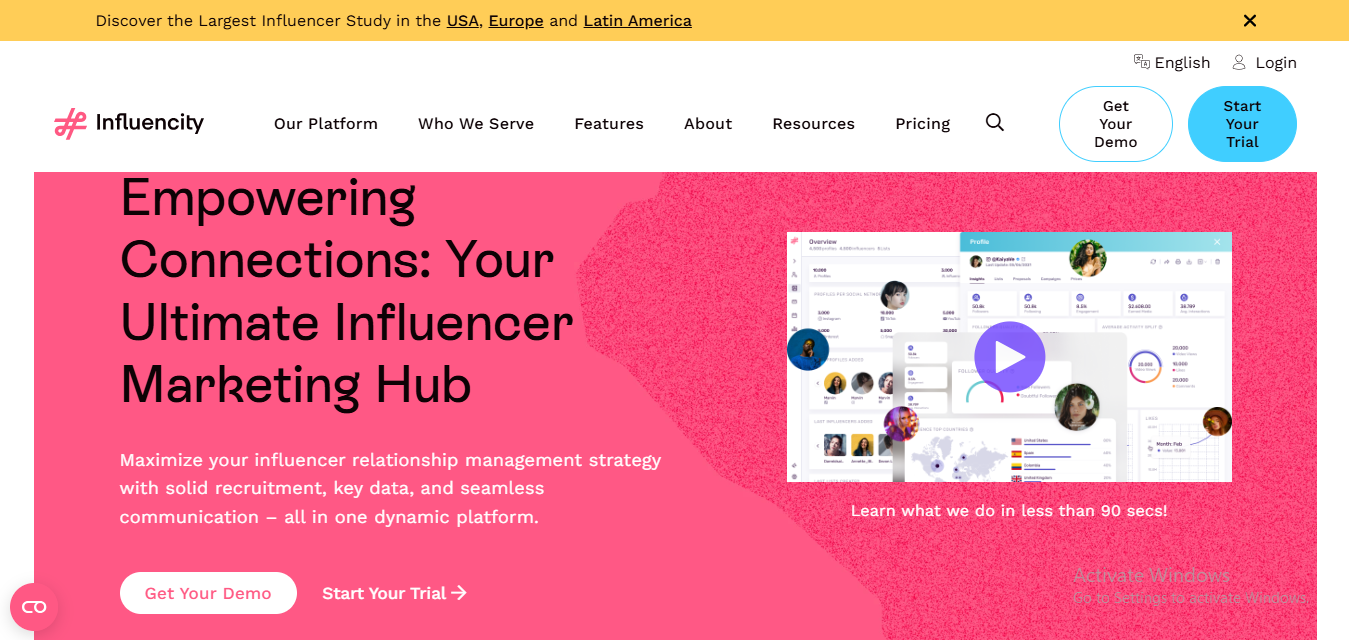
What I Liked:
Okay, Influencity is like the “data geek” of influencer platforms. The detailed analytics and audience insights are top-notch. It lets you track not just influencer performance, but also how well your campaigns are resonating with audiences—super valuable stuff.
What I Didn’t Like:
The UI is a bit clunky. It feels like it needs some design TLC. But once you get past the interface, the features are solid.
Core Features:
- Advanced data & analytics
- Influencer search & segmentation
- Campaign tracking
Pricing:
They have a more affordable option for small businesses, but pricing can escalate for large campaigns.
5. Hashtag Paid
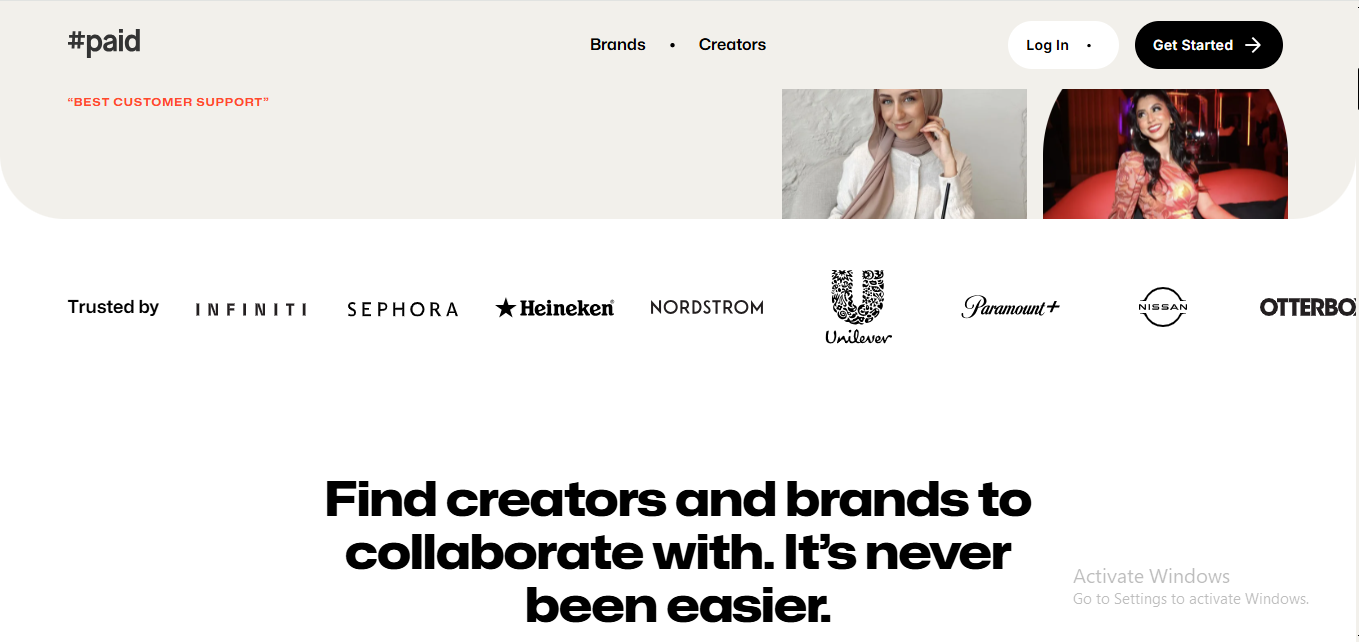
What I Liked:
HashtagPaid is perfect if you want a platform that feels like it’s made for creators. It’s super easy to use, and you can get started quickly without feeling overwhelmed by tons of features. They also offer cool tools to help you find the right brand collaborations based on your content.
What I Didn’t Like:
The platform’s pretty basic in terms of features compared to others on this list. If you’re looking for complex reporting or high-level analytics, it might not cut it.
Core Features:
- Simple campaign setup
- Creator-focused
- Quick payouts
Pricing:
Very affordable for smaller creators and mid-range brands.
6. Lolly
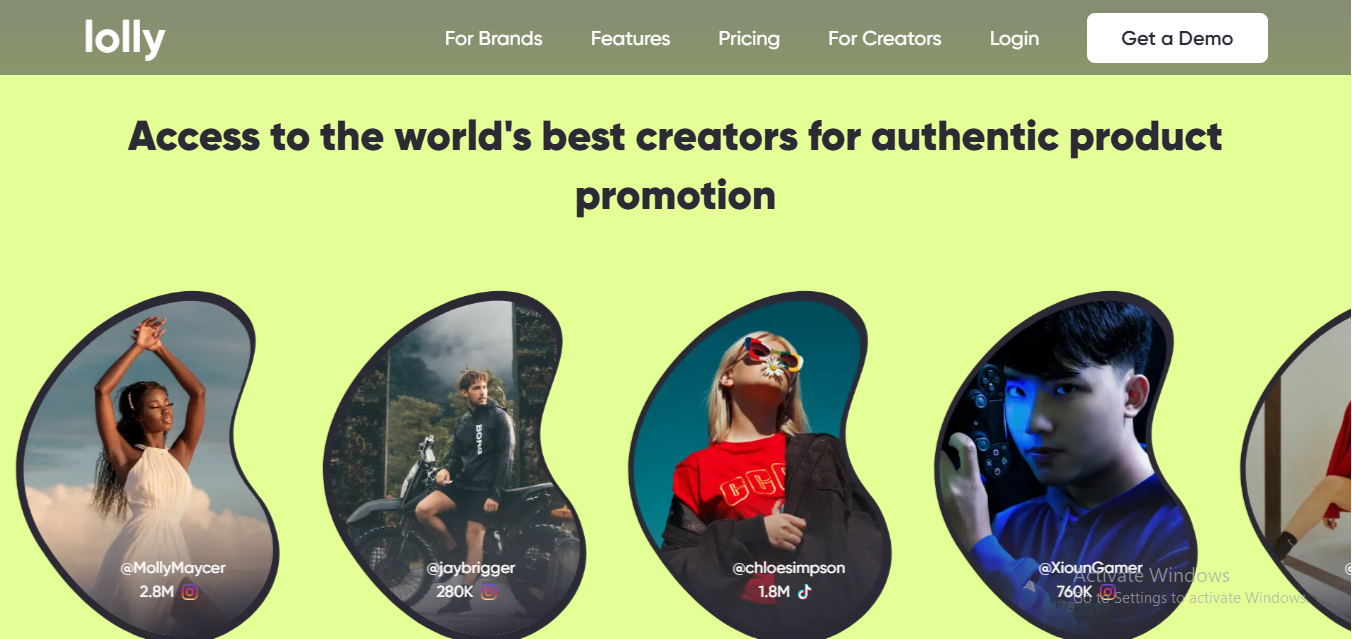
What I Liked:
Lolly has this super fun and interactive approach to influencer marketing. It feels like a social network where influencers and brands can vibe together. The discovery feature is great, helping you find influencers who align with your brand’s identity.
What I Didn’t Like:
The platform is still a little young, and some features feel underdeveloped. But hey, it’s a startup, so they’re improving fast.
Core Features:
- Easy influencer discovery
- Fun, social feel
- Campaign management tools
Pricing:
They’ve got flexible pricing, which makes it great for small businesses and influencers looking to try it out.
7. The Cirqle
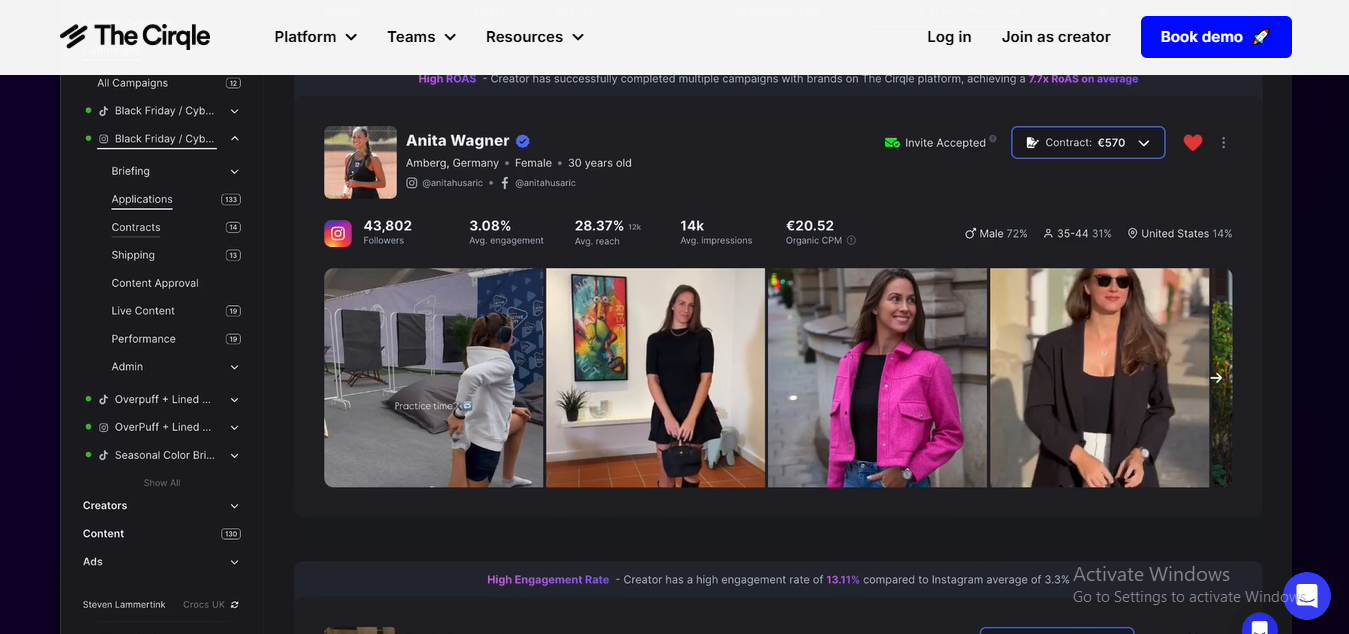
What I Liked:
Alright, The Cirqle is one of those platforms that does a lot of things right—like providing a seamless influencer discovery process and offering great content analytics. It’s definitely more for brands that want to scale and want a more polished platform for managing influencer relationships.
What I Didn’t Like:
The dashboard can get a little overwhelming, especially if you’re not used to managing multiple campaigns at once. Plus, pricing can be a bit high if you’re not a large brand.
Core Features:
- Scalable influencer marketing
- Campaign analytics
- Integrations with e-commerce
Pricing:
On the higher end, so it’s better suited for larger businesses.
1. Popular Pays
What I Liked:
This one’s like Tinder, but for content collabs. Super swipeable. I loved how quickly you can find creators and get campaigns rolling. Their UI is clean AF, and you can view past content from influencers before you even DM them (kinda like creeping on their IG).
What I Didn’t Like:
The reporting features are a little meh. Don’t expect deep-dive analytics like NASA-level stuff. It gets the job done, but just barely if you’re running major numbers.
Core Features:
- Fast creator discovery
- User-generated content (UGC) marketplace
- Campaign creation in minutes
Pricing:
Mid-tier. Good value for small brands, but scaling gets pricey.
2. Collabstr
What I Liked:
This is the plug for affordable influencers. If you’re ballin’ on a budget, Collabstr’s marketplace is crazy good. You can literally browse influencers with their rates up front—like shopping for sneakers.
What I Didn’t Like:
It’s not built for long-term campaign management. Think of it more like one-night-stand influencer deals than serious relationships.
Core Features:
- Transparent pricing
- Easy booking
- Great for TikTok and IG collabs
Pricing:
Super budget-friendly. Ideal for start-ups and solo creators.
3. Kolsquare
What I Liked:
If you’re into data (like, nerd-level into it), Kolsquare brings the heat. I’m talking audience breakdowns, brand safety scores, and influencer credibility. It’s basically like having Sherlock Holmes on your campaign team.
What I Didn’t Like:
The UI feels like it was built by someone who’s never smiled. Functional? Yes. Friendly? Not quite.
Core Features:
- Deep influencer insights
- Global database
- Great for international campaigns
Pricing:
Definitely leans enterprise. Worth it if you’re managing big-name clients.
4. Captiv8
What I Liked:
Captiv8 is a beast. The AI features are low-key impressive—like, it actually helps recommend the best time to post and which influencers have trending engagement. Great for data-backed decisions without pulling an all-nighter on spreadsheets.
What I Didn’t Like:
A bit overwhelming at first. It’s like being handed the keys to a spaceship when you just wanted to drive a Tesla. Training helps.
Core Features:
- AI-driven influencer recommendations
- Paid media amplification
- Forecasting + ROI tools
Pricing:
Not for hobbyists. Big brands, agencies—this is your playground.
5. Aspire (formerly AspireIQ)
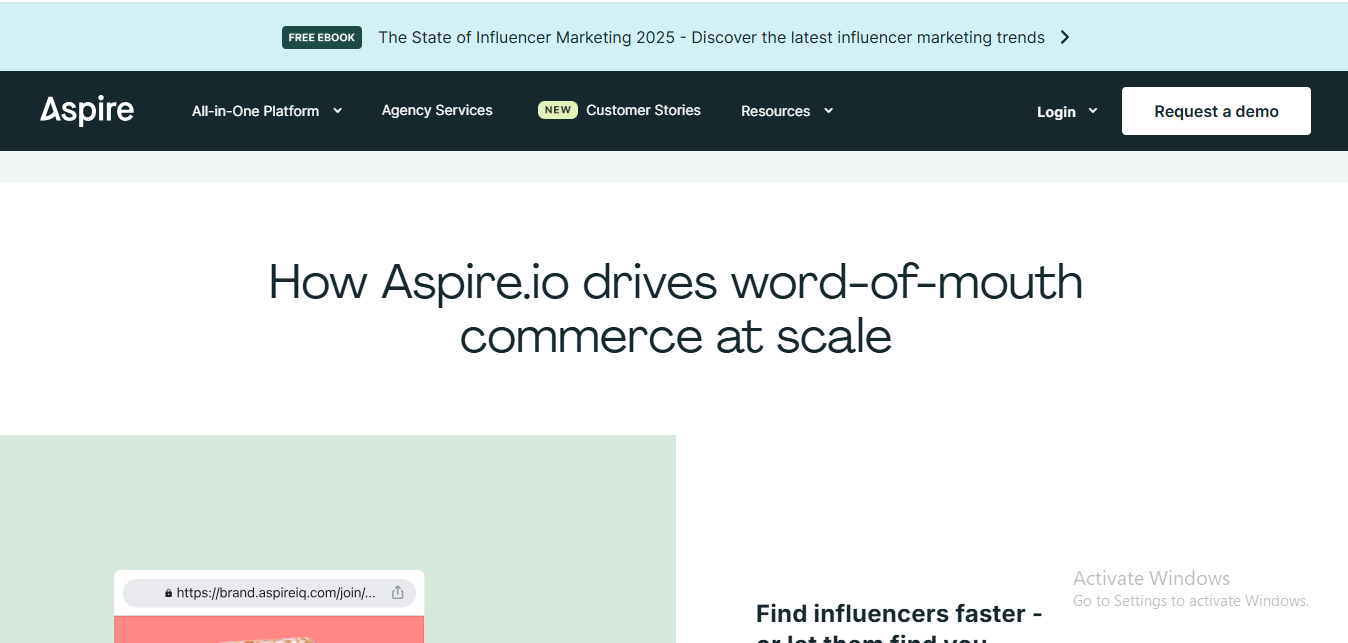
What I Liked:
Aspire’s built for community vibes. It lets brands build squads of influencers that vibe with their long-term mission. I loved the CRM-style dashboard, and the automation options legit saved me hours.
What I Didn’t Like:
There’s a slight learning curve, and the mobile version isn’t as slick as desktop. I mean, who’s running campaigns from their phone—but still.
Core Features:
- CRM for influencer relationships
- Scalable UGC workflows
- Campaign briefs + automated outreach
Pricing:
Mid-to-high tier. Great ROI if you’re building brand loyalty.
6. TRIBE
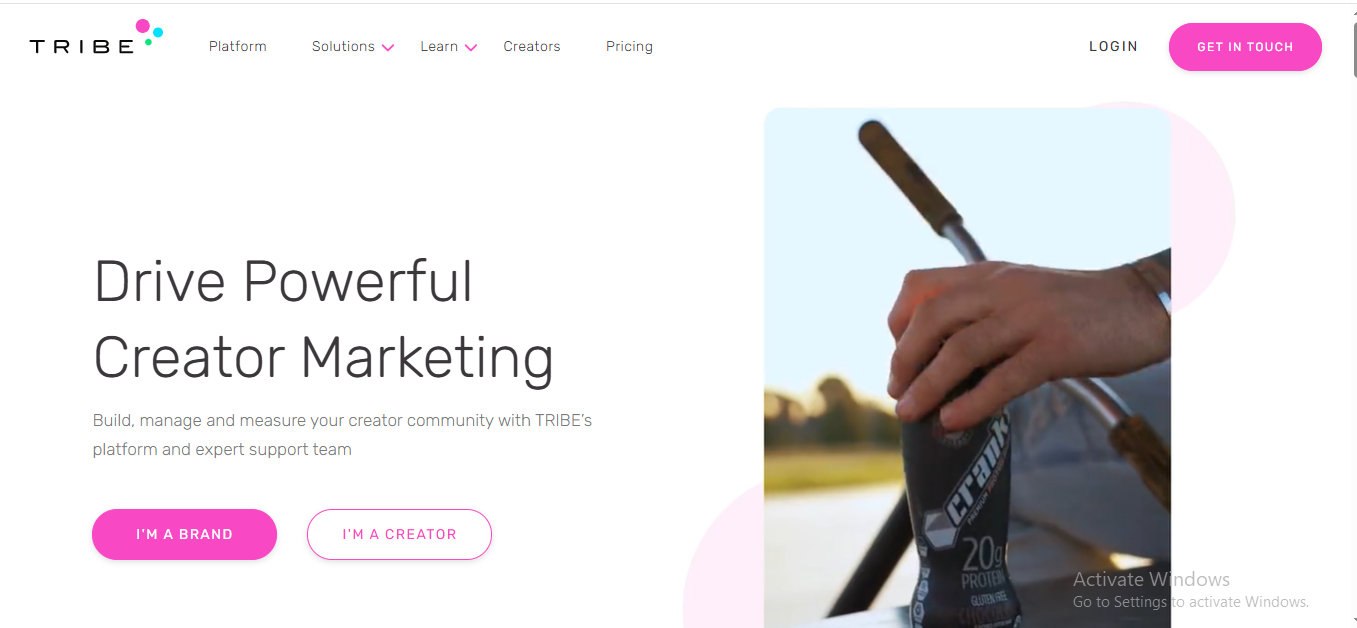
What I Liked:
TRIBE is like “American Idol” for influencers. You post a brief, and creators pitch you their ideas before they get paid. It’s wild—and really smart. You get to see who vibes with your brand before investing.
What I Didn’t Like:
Volume over quality sometimes. You’ll need to sift through pitches to find the real gold.
Core Features:
- Creator pitching
- Instant campaign briefs
- Seamless approvals
Pricing:
Pay-per-campaign model. Super flexible for SMBs and indie brands.
7. Braze
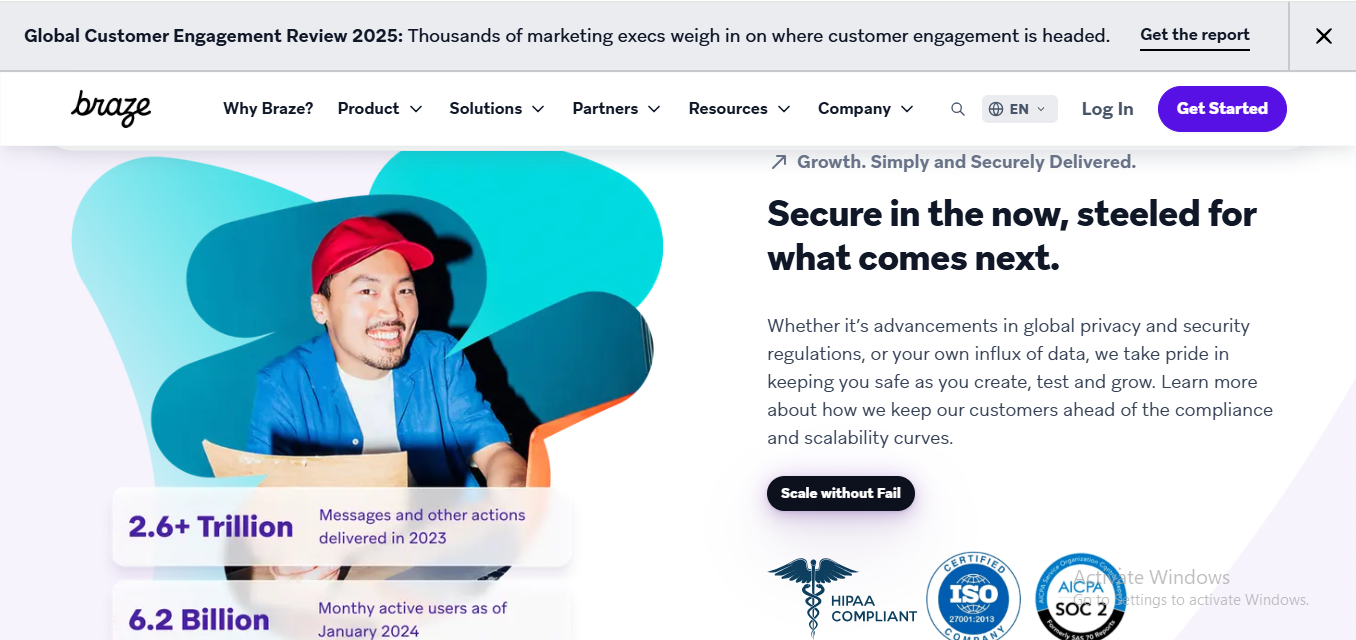
What I Liked:
Okay, Braze is technically more of a customer engagement platform, but it integrates so well with influencer marketing tools. You can take all that juicy influencer data and use it to level up your email, SMS, and push campaigns. Love that.
What I Didn’t Like:
Not a standalone influencer platform. You’ll need to pair it with something else (think: like pairing wine and cheese).
Core Features:
- Real-time customer engagement
- Smart segmentation
- Perfect for retargeting campaigns
Pricing:
Enterprise-level. For brands that want full control over customer journey and marketing.
8. Popular Pays
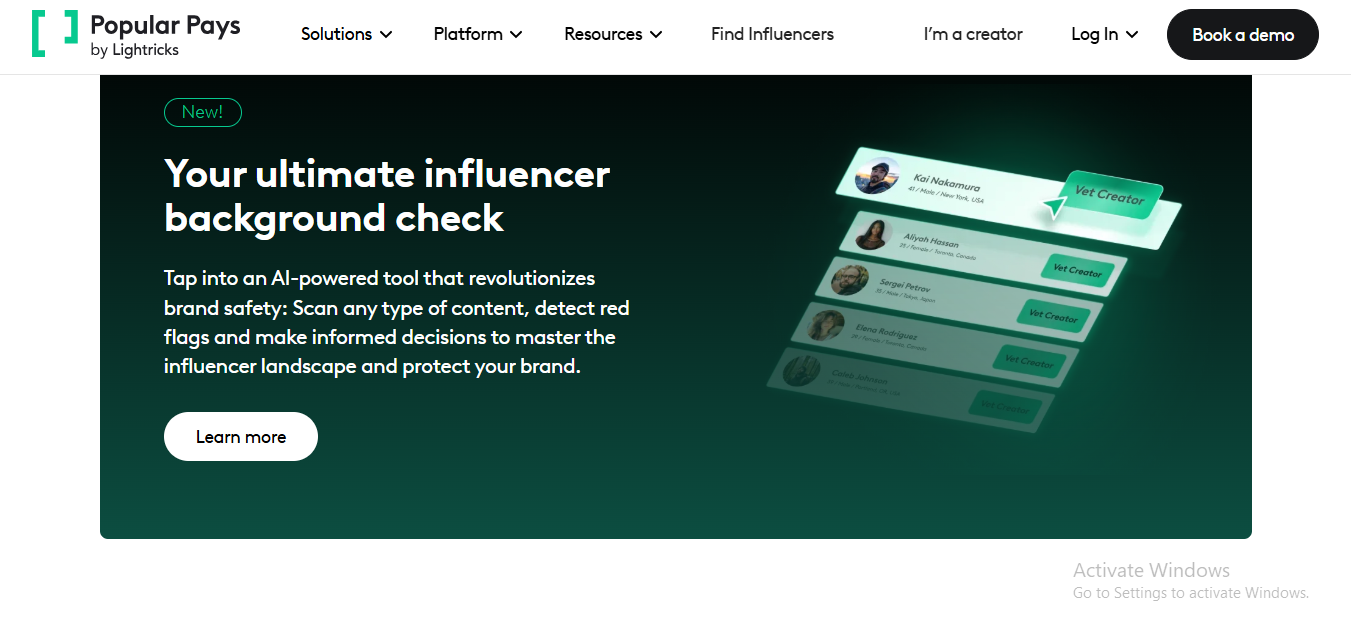
What I Liked:
This one’s like Tinder, but for content collabs. Super swipeable. I loved how quickly you can find creators and get campaigns rolling. Their UI is clean AF, and you can view past content from influencers before you even DM them (kinda like creeping on their IG).
What I Didn’t Like:
The reporting features are a little meh. Don’t expect deep-dive analytics like NASA-level stuff. It gets the job done, but just barely if you’re running major numbers.
Core Features:
- Fast creator discovery
- User-generated content (UGC) marketplace
- Campaign creation in minutes
Pricing:
Mid-tier. Good value for small brands, but scaling gets pricey.
9. Collabstr
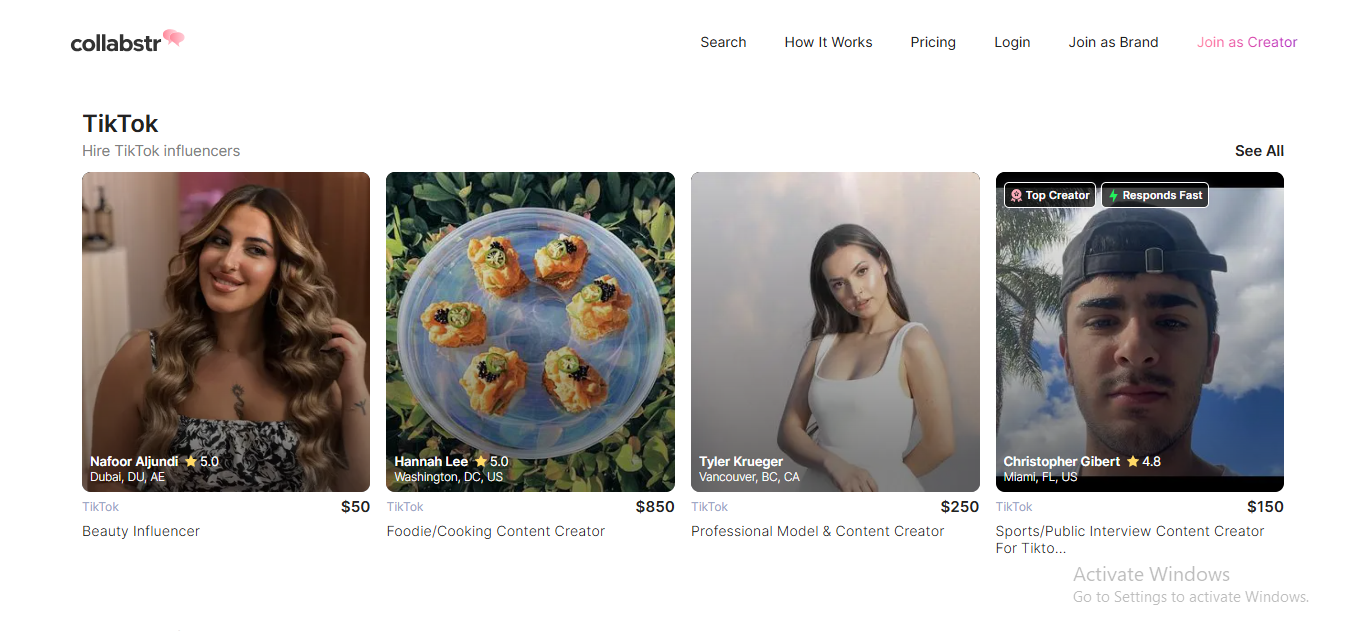
What I Liked:
This is the plug for affordable influencers. If you’re ballin’ on a budget, Collabstr’s marketplace is crazy good. You can literally browse influencers with their rates up front—like shopping for sneakers.
What I Didn’t Like:
It’s not built for long-term campaign management. Think of it more like one-night-stand influencer deals than serious relationships.
Core Features:
- Transparent pricing
- Easy booking
- Great for TikTok and IG collabs
Pricing:
Super budget-friendly. Ideal for start-ups and solo creators.
10. Kolsquare
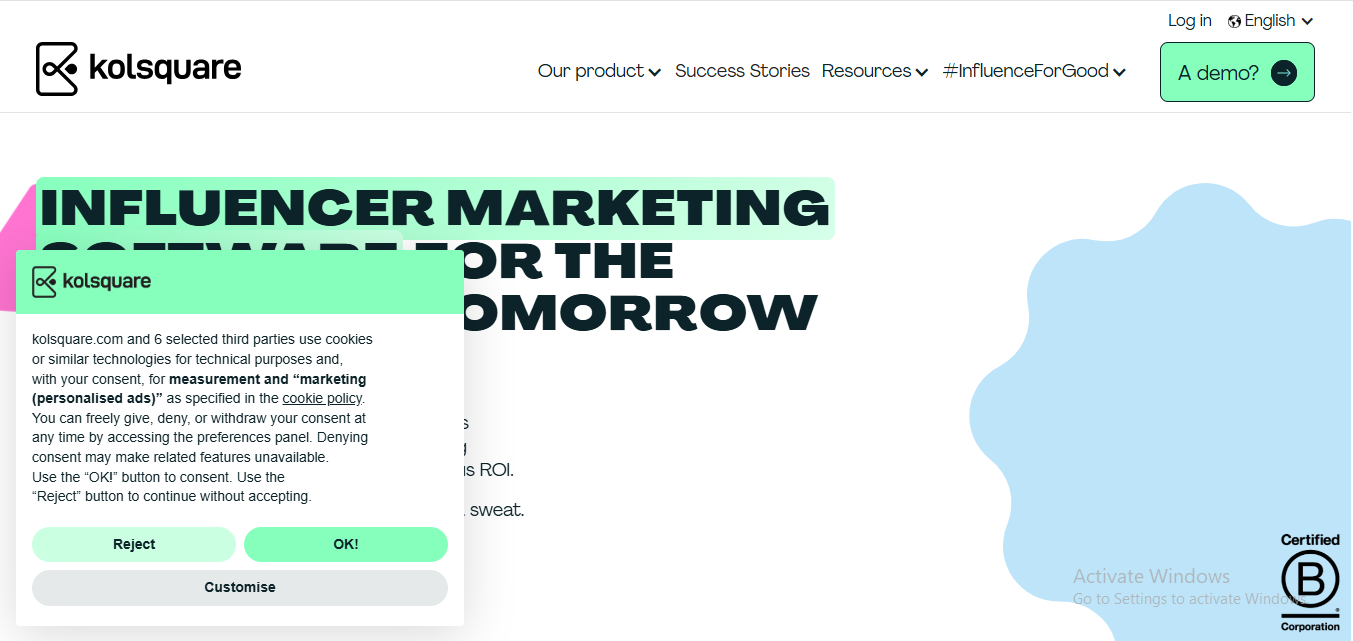
What I Liked:
If you’re into data (like, nerd-level into it), Kolsquare brings the heat. I’m talking audience breakdowns, brand safety scores, and influencer credibility. It’s basically like having Sherlock Holmes on your campaign team.
What I Didn’t Like:
The UI feels like it was built by someone who’s never smiled. Functional? Yes. Friendly? Not quite.
Core Features:
- Deep influencer insights
- Global database
- Great for international campaigns
Pricing:
Definitely leans enterprise. Worth it if you’re managing big-name clients.
11. Captiv8
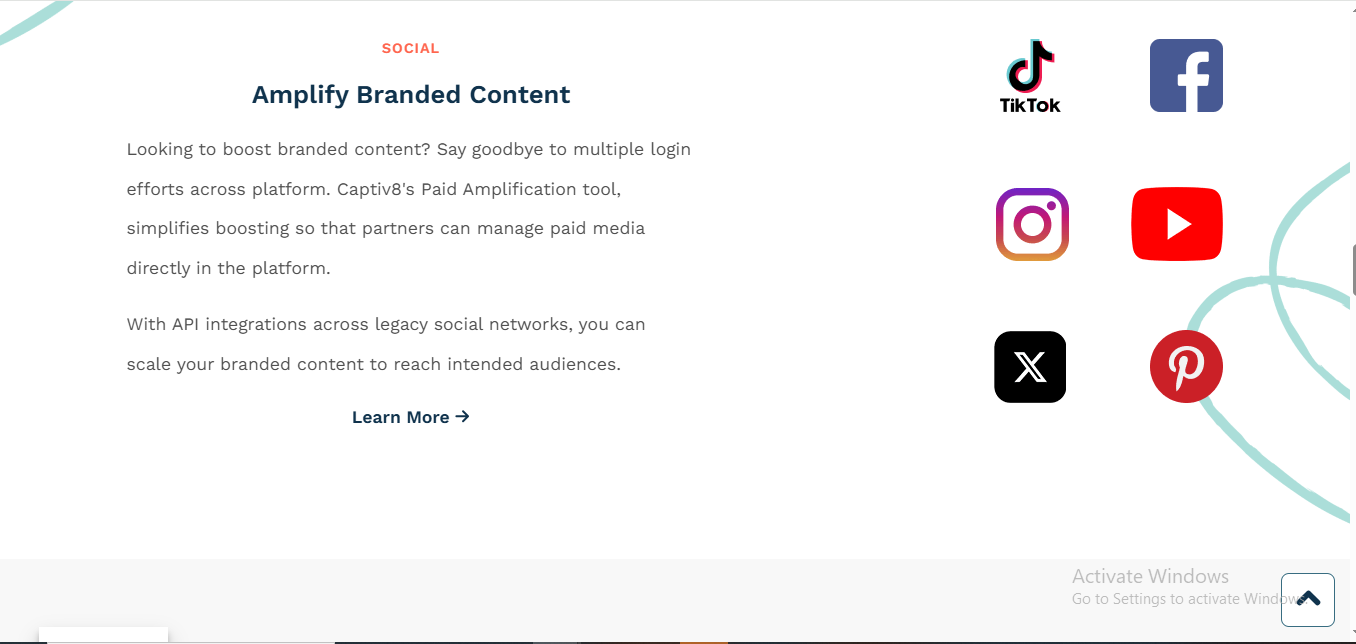
What I Liked:
Captiv8 is a beast. The AI features are low-key impressive—like, it actually helps recommend the best time to post and which influencers have trending engagement. Great for data-backed decisions without pulling an all-nighter on spreadsheets.
What I Didn’t Like:
A bit overwhelming at first. It’s like being handed the keys to a spaceship when you just wanted to drive a Tesla. Training helps.
Core Features:
- AI-driven influencer recommendations
- Paid media amplification
- Forecasting + ROI tools
Pricing:
Not for hobbyists. Big brands, agencies—this is your playground.
12. Aspire (formerly AspireIQ)

What I Liked:
Aspire’s built for community vibes. It lets brands build squads of influencers that vibe with their long-term mission. I loved the CRM-style dashboard, and the automation options legit saved me hours.
What I Didn’t Like:
There’s a slight learning curve, and the mobile version isn’t as slick as desktop. I mean, who’s running campaigns from their phone—but still.
Core Features:
- CRM for influencer relationships
- Scalable UGC workflows
- Campaign briefs + automated outreach
Pricing:
Mid-to-high tier. Great ROI if you’re building brand loyalty.
13. TRIBE
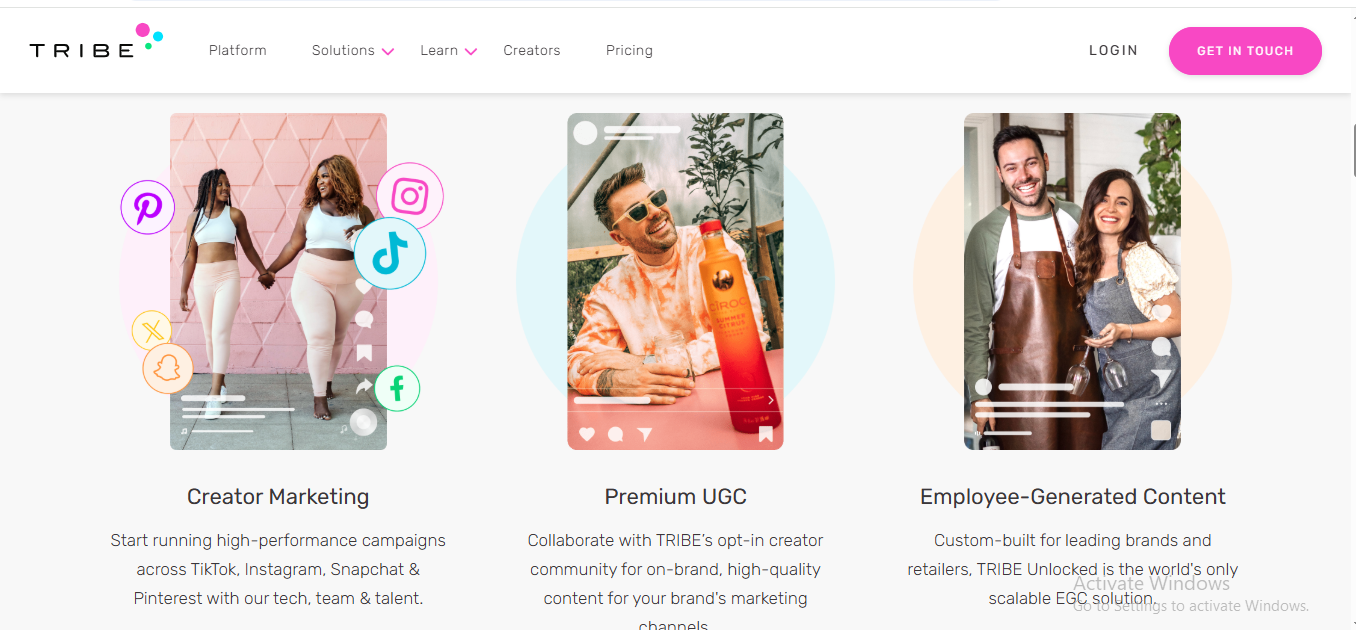
What I Liked:
TRIBE is like “American Idol” for influencers. You post a brief, and creators pitch you their ideas before they get paid. It’s wild—and really smart. You get to see who vibes with your brand before investing.
What I Didn’t Like:
Volume over quality sometimes. You’ll need to sift through pitches to find the real gold.
Core Features:
- Creator pitching
- Instant campaign briefs
- Seamless approvals
Pricing:
Pay-per-campaign model. Super flexible for SMBs and indie brands.
14. Braze

What I Liked:
Okay, Braze is technically more of a customer engagement platform, but it integrates so well with influencer marketing tools. You can take all that juicy influencer data and use it to level up your email, SMS, and push campaigns. Love that.
What I Didn’t Like:
Not a standalone influencer platform. You’ll need to pair it with something else (think: like pairing wine and cheese).
Core Features:
- Real-time customer engagement
- Smart segmentation
- Perfect for retargeting campaigns
Pricing:
Enterprise-level. For brands that want full control over customer journey and marketing.
15. IZEA
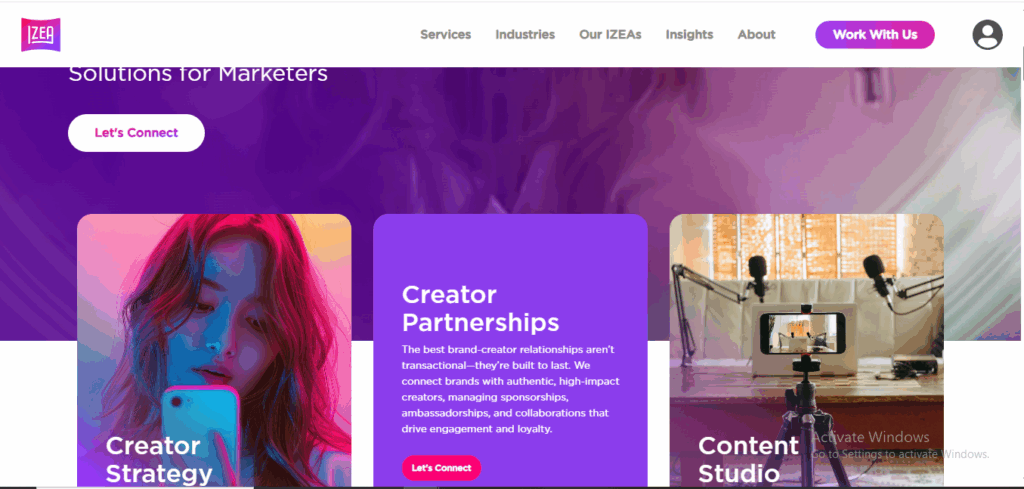
What I Liked:
IZEA is a huge player in the influencer marketing game. It’s packed with features that make it super easy to find influencers who match your brand’s vibe. Plus, they’ve got both influencer discovery and campaign management tools, so it’s basically a one-stop shop for content creation and tracking.
What’s also cool is their payments feature—it’s super easy to handle all your influencer transactions without needing a third-party tool. Major time-saver.
What I Didn’t Like:
It’s a bit on the pricier side, especially if you’re just getting started or working with a smaller budget. The platform’s learning curve is also a little steep for newbies. It’s definitely more suited for brands that have been around the block in the influencer space.
Core Features:
- Influencer search and management
- Campaign tracking and analytics
- Influencer payments and contracts
Pricing:
High-end. Expect to pay for the premium features, but it’s worth it if you’re running big campaigns.
16. Insense
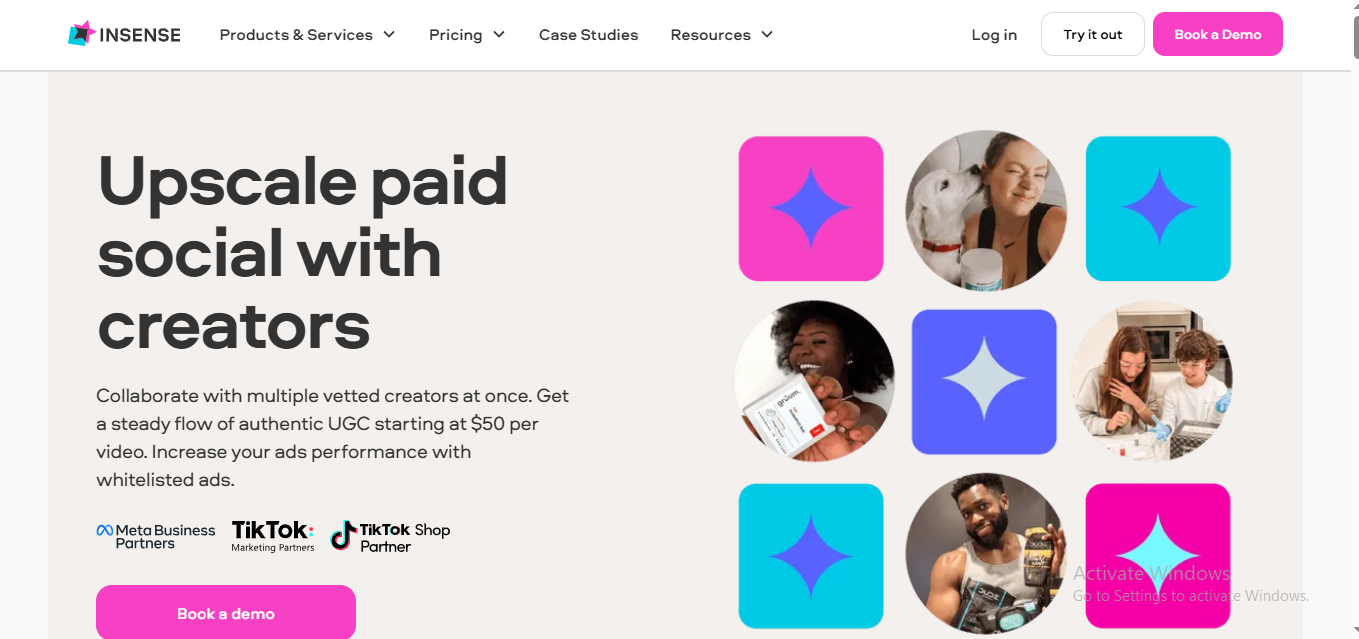
What I Liked:
Insense is like a creator’s playground. They’ve got a ton of cool tools for UGC (User-Generated Content) creation and influencer collaborations. What I love most about it? The way you can co-create content with influencers and directly manage your ad creatives. It’s perfect for those looking for deeper, more creative collaborations.
What I Didn’t Like:
The interface can be a little overwhelming at first. It’s a lot to unpack, and the learning curve is real. Also, the pricing model isn’t super transparent—so you might end up paying for more than you need, especially if you’re a small brand just testing the waters.
Core Features:
- UGC collaboration tools
- Content creation & ad management
- Influencer marketplace
Pricing:
Middle-to-high range. Works best for brands with a solid budget looking for quality content creators.
17. Influence.co
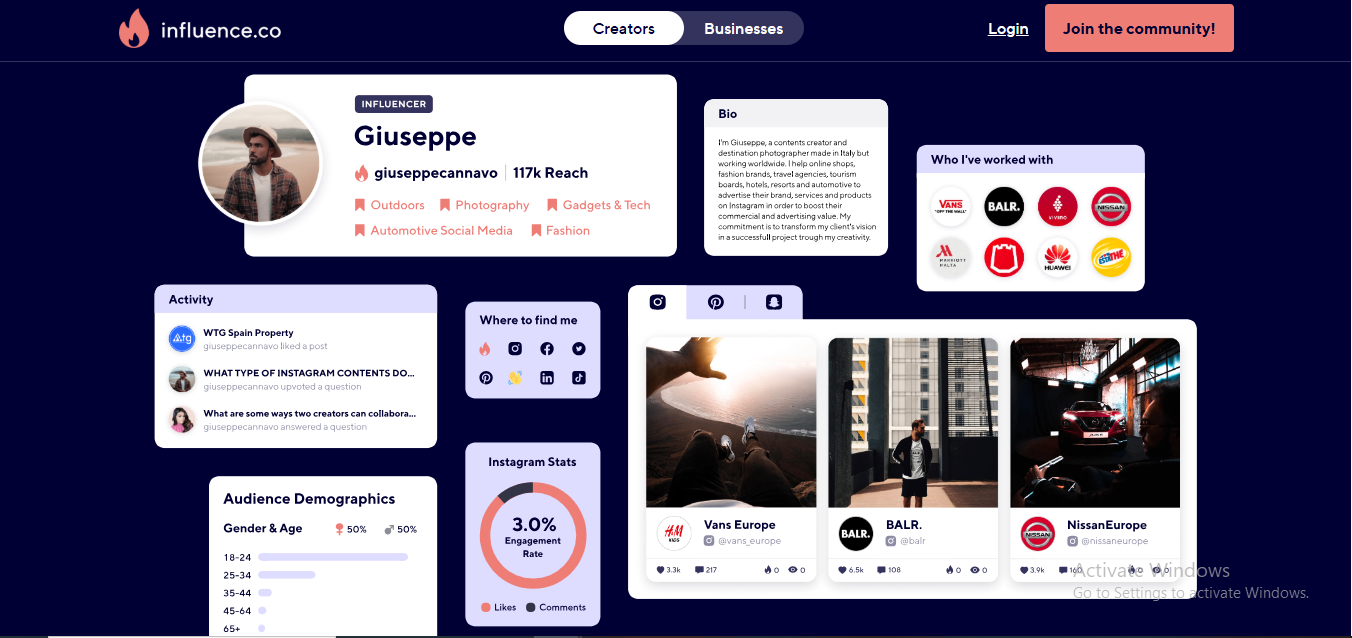
What I Liked:
Influence.co is super community-oriented, which is a breath of fresh air. It’s got this whole creator-centric feel, where influencers can build their own portfolios and brands can browse through them. It’s like the LinkedIn for influencers. Plus, their platform is user-friendly and doesn’t feel like you’re drowning in features.
What I Didn’t Like:
The influencer pool here is smaller compared to some other platforms, so if you’re looking for a wide variety of influencer options, you might find the selection a little limited. Also, I found the analytics to be somewhat lacking in depth.
Core Features:
- Influencer portfolios
- Creator search & discovery
- Community engagement
Pricing:
Affordable, especially for small brands or influencers just getting started. A good option if you’re on a budget.
18. Influencer.com
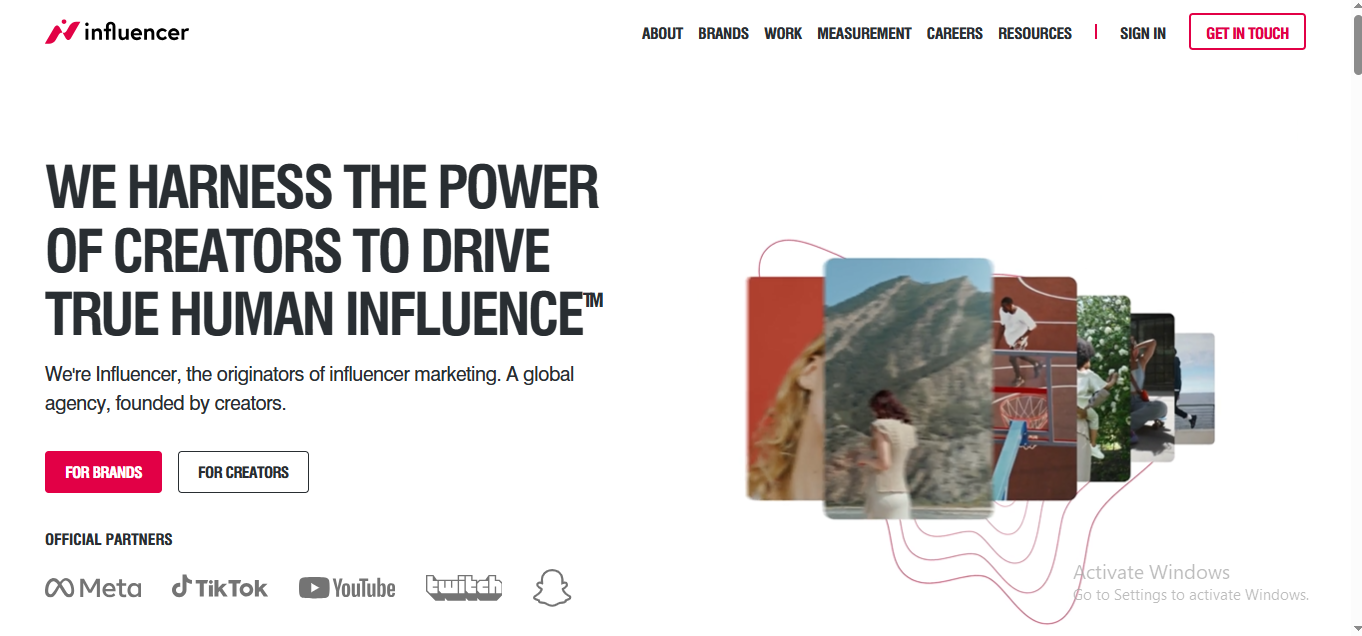
What I Liked:
Influencer.com stands out with its data-driven approach. They make it super easy to get insights on potential influencers based on audience demographics, engagement rates, and overall reach. It’s like having a mini data scientist on your team!
What also makes it unique is the way it helps you manage and track multi-platform campaigns. If you’re working with influencers across Instagram, TikTok, YouTube, etc., this is a great tool to keep everything in sync.
What I Didn’t Like:
It’s very enterprise-focused, which means if you’re a smaller brand, you might get a bit overwhelmed or priced out. The setup process is also a bit tedious, so you’ll need some patience.
Core Features:
- Multi-platform campaign management
- Audience analytics and insights
- Influencer performance tracking
Pricing:
High-tier pricing. Ideal for bigger brands or agencies that need a comprehensive solution.
19. Later
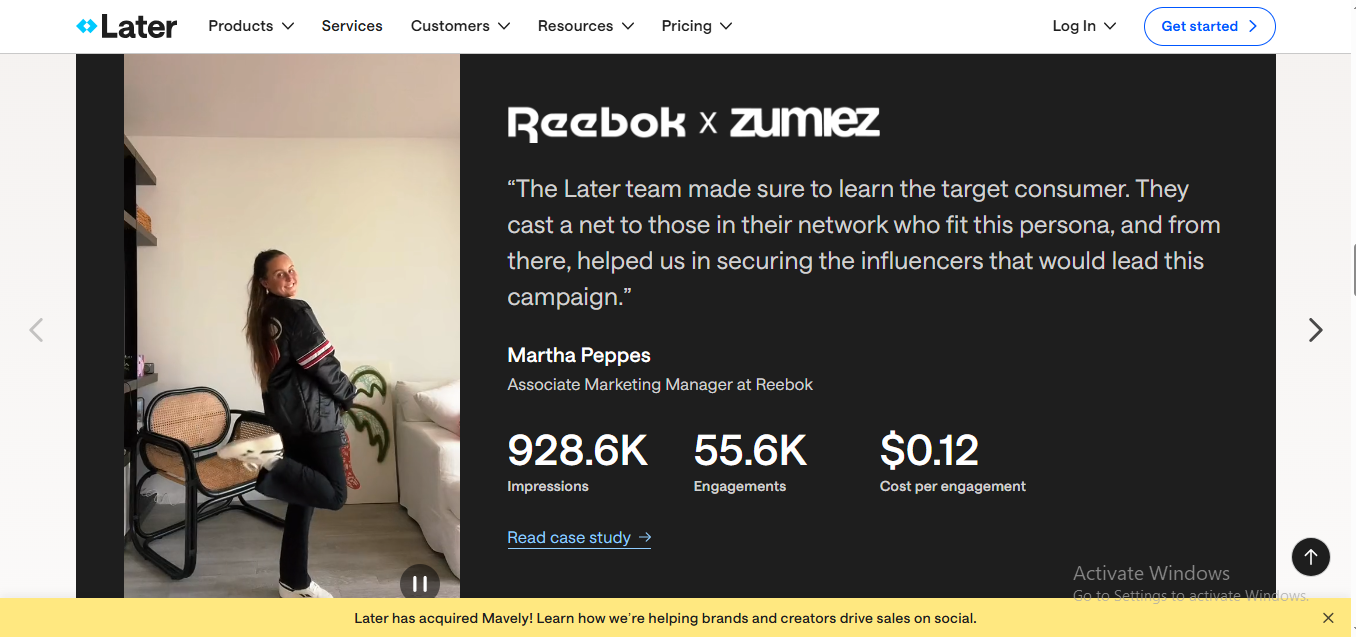
What I Liked:
Later is killer for scheduling and content management. It’s one of the easiest platforms I’ve used to manage Instagram, TikTok, and Pinterest content. Their drag-and-drop content calendar is honestly genius, and it helps brands stay organized and on schedule. Plus, they’ve got analytics tools that can help you fine-tune your posts.
What I Didn’t Like:
Later isn’t as focused on influencer discovery. It’s more about content planning and social media management. So if you’re looking for influencer-specific features, you’ll need to look elsewhere. It also doesn’t have as many collaboration features for influencers compared to other platforms.
Core Features:
- Social media scheduling
- Content calendar and organization
- Analytics for social platforms
Pricing:
Affordable for small to medium businesses, but it can get pricier if you need extra features like analytics and advanced scheduling.
20. Shout Agency
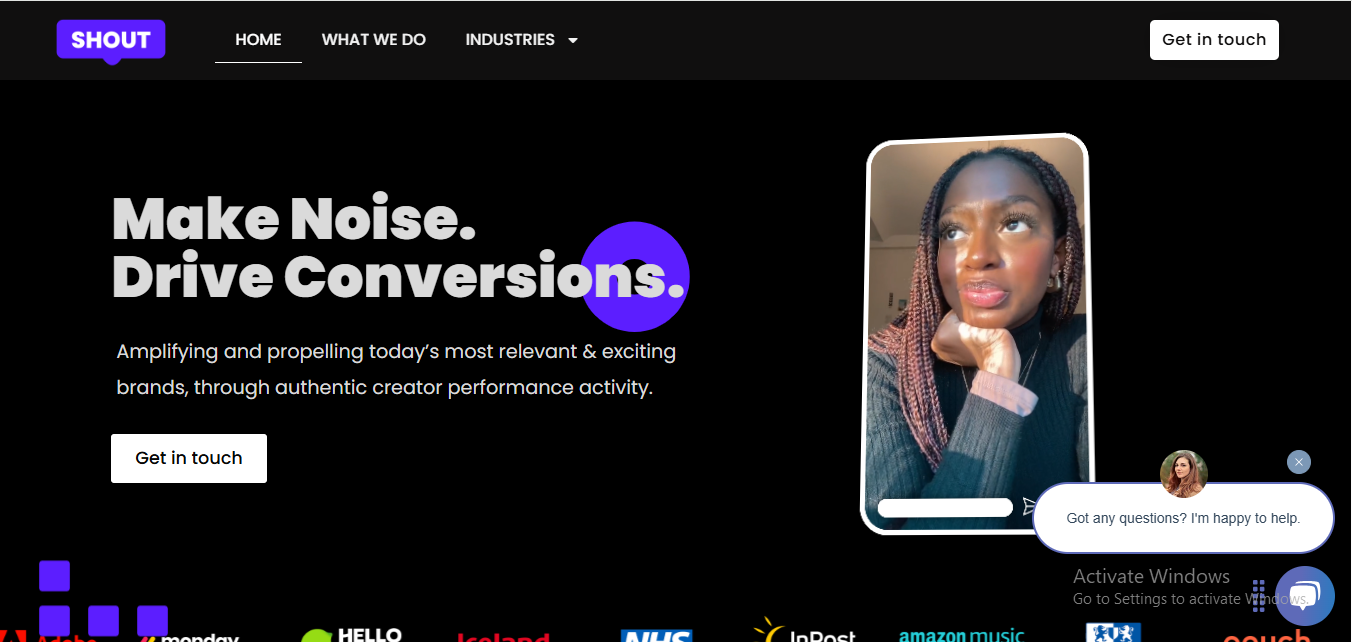
What I Liked:
Shout Agency is like that one friend who always has your back. It’s an end-to-end influencer marketing platform that handles everything from finding influencers to running full-scale campaigns. What’s awesome here is the data-driven approach they take with each campaign. They provide in-depth reports, which help you see exactly what your ROI is looking like. The influencer discovery is pretty easy too.
What I Didn’t Like:
It’s a bit more hands-off compared to other platforms. So, if you’re looking for something that lets you get super creative or manage the whole thing yourself, this might not be your best bet. Also, the pricing structure can be a little murky, so you might need to ask a few more questions to understand the full cost breakdown.
Core Features:
- Influencer discovery and campaign management
- Analytics and ROI tracking
- Full-service campaign support
Pricing:
Not the cheapest. It’s better for brands with a decent budget that are looking for a comprehensive solution.
21. Klear
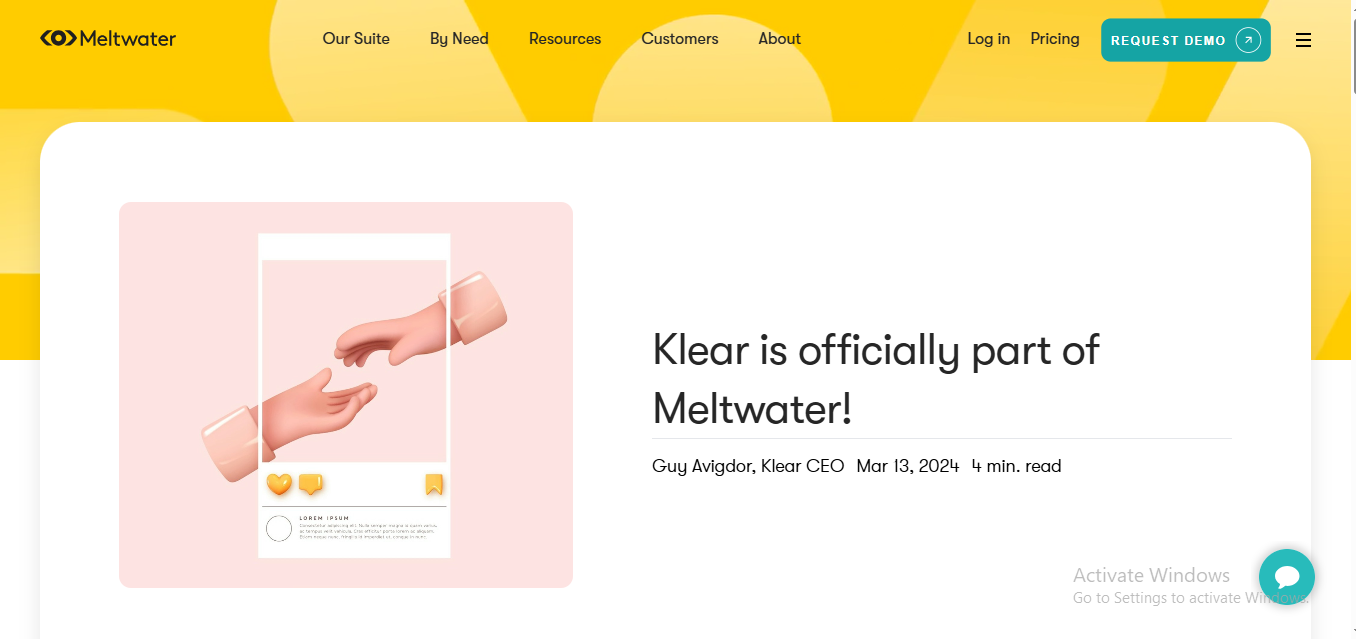
What I Liked:
Klear is like your influencer analytics genie. It offers super detailed insights into influencer performance, from engagement rates to audience demographics. If you’re someone who loves stats and needs hard numbers to back up decisions, Klear’s your go-to. It also has a pretty solid search engine for finding influencers by niche, audience, or even geography.
What I Didn’t Like:
While it’s got those fantastic analytics, the platform can feel a bit like a numbers overload for someone who’s not too familiar with marketing data. If you’re just starting out with influencer marketing, you might find the interface a little intimidating. Also, it can be a bit pricey for smaller brands.
Core Features:
- Influencer discovery by niche & audience
- Advanced analytics and reporting
- Campaign tracking and ROI
Pricing:
Klear’s pricing is pretty up there, so it’s best for brands that want high-end features and have the budget to back it up.
22. Brandbassador
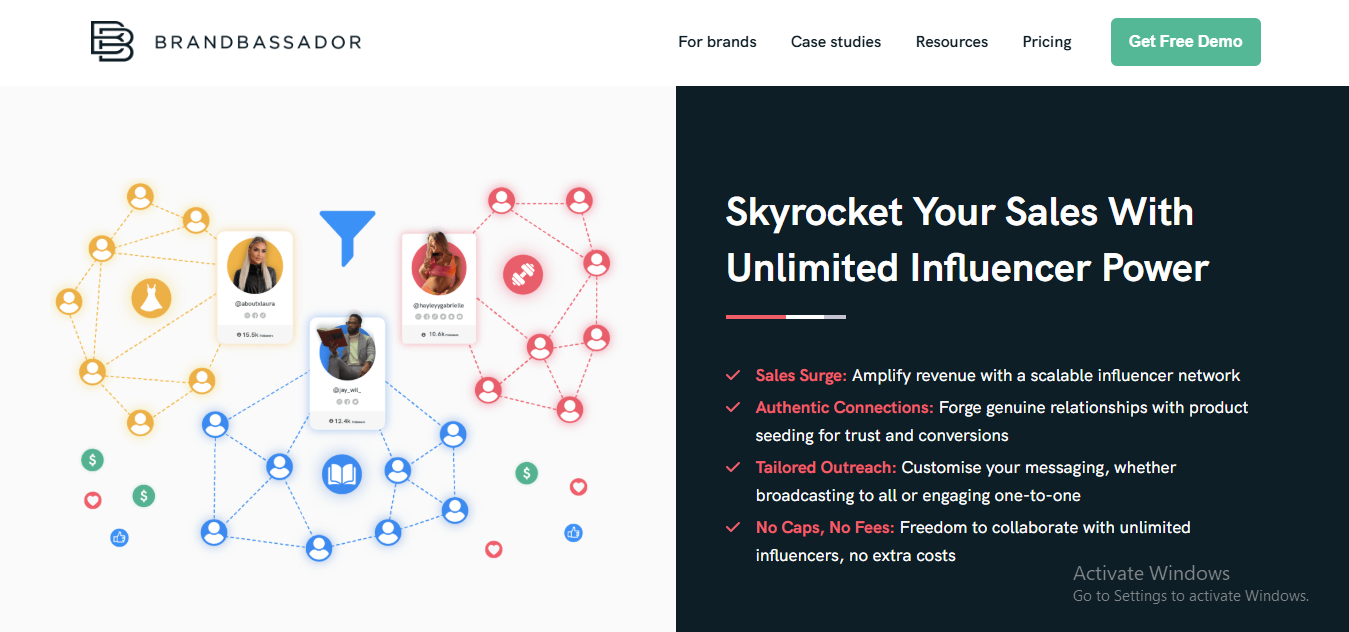
What I Liked:
Brandbassador is all about building long-term relationships with your influencers, and it’s got a super user-friendly interface that makes things easy to navigate. They focus on brand ambassadors, which means you can have influencers rep your brand for the long haul, not just for a one-off post. I really appreciate the automated workflow that helps you set up campaigns without a ton of manual input.
What I Didn’t Like:
The main downside is the limited influencer pool. If you’re looking for a massive range of influencer types, you might feel like you’re not getting as much variety as you’d want. Also, some of the integrations with other tools could be better.
Core Features:
- Brand ambassador programs
- Automated campaign workflows
- Influencer tracking and payment tools
Pricing:
It’s reasonably priced, especially if you’re looking for a platform to run long-term influencer programs without breaking the bank.
23. Shout UGC
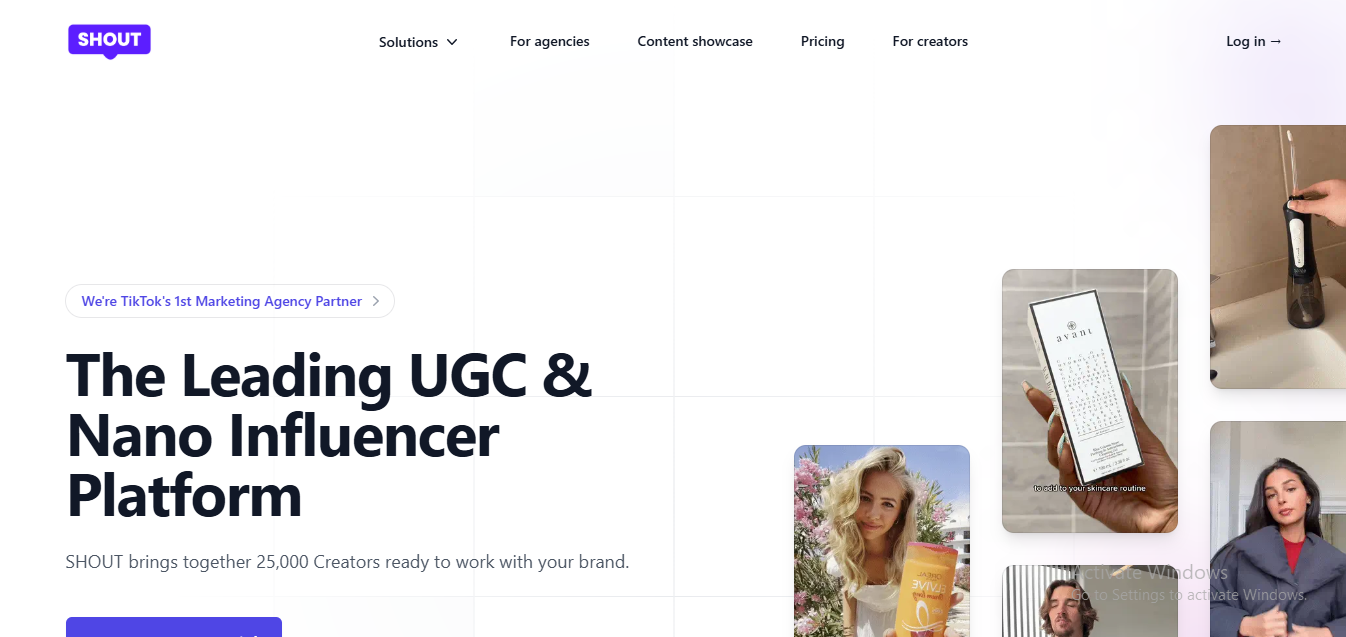
What I Liked:
If you’re all about User-Generated Content (UGC), then Shout UGC is the platform you should be eyeing. This tool lets you create a UGC community where your influencers, customers, and even random fans can generate content for you. This is perfect if you’re running ad campaigns and need a constant flow of fresh content to engage your audience.
What I Didn’t Like:
It’s not as comprehensive as some other influencer platforms. It’s all about UGC, so if you’re looking for broader influencer marketing tools like campaign management or analytics, you’ll need to look elsewhere. It can be limiting if you want more than just UGC.
Core Features:
- UGC creation and management
- Customer and influencer content generation
- Content approval workflows
Pricing:
It’s super affordable for smaller brands and those just getting started with influencer marketing.
24. CreatorIQ
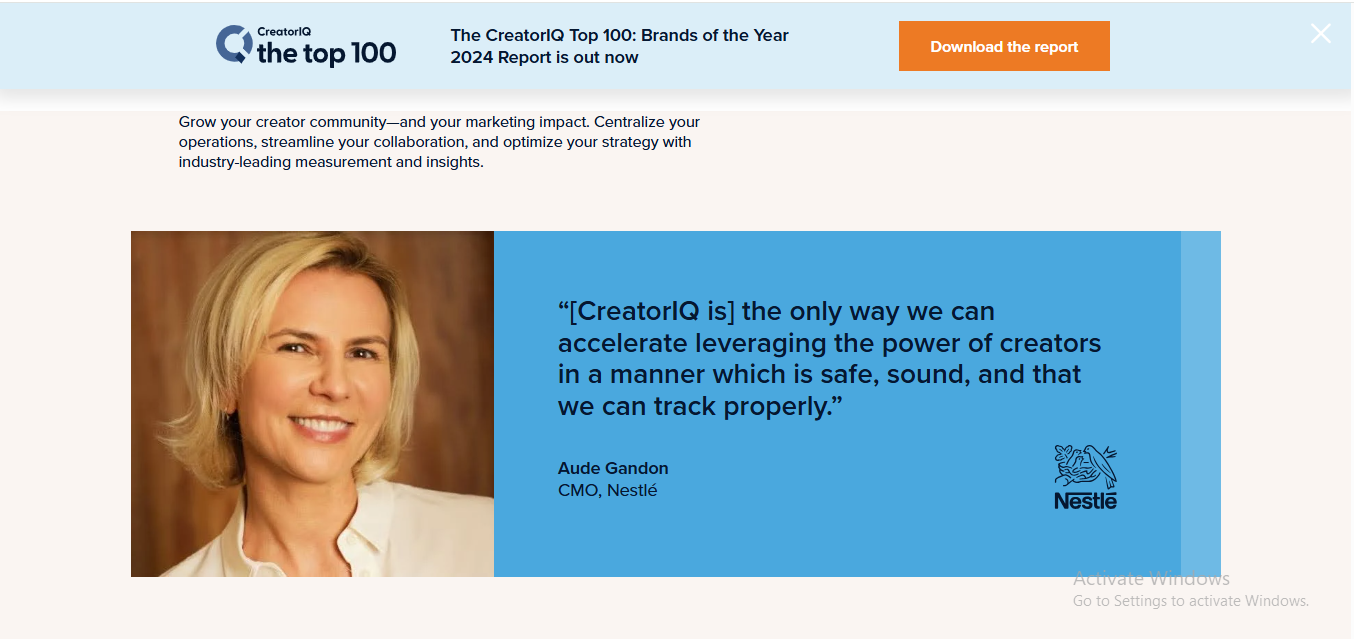
What I Liked:
CreatorIQ is all about scalability. Whether you’re running a small campaign or a massive global operation, this platform can handle it all. The analytics and reporting are top-notch, and it integrates easily with a lot of other platforms, so you can keep your influencer marketing in one seamless ecosystem. They’ve also got a huge influencer database, which gives you tons of options when it comes to picking your creators.
What I Didn’t Like:
It’s definitely a bit much for beginners. The platform is built for brands with serious influencer marketing needs, so if you’re just dipping your toes into this world, you might find it a bit overwhelming. And the pricing is definitely on the high side, so it’s best for medium to large brands.
Core Features:
- End-to-end influencer marketing
- Analytics and performance tracking
- Global influencer database
Pricing:
Expect to pay a premium for the level of service you get here. It’s designed for larger brands or agencies with big budgets.
25. Influencer Marketing AI
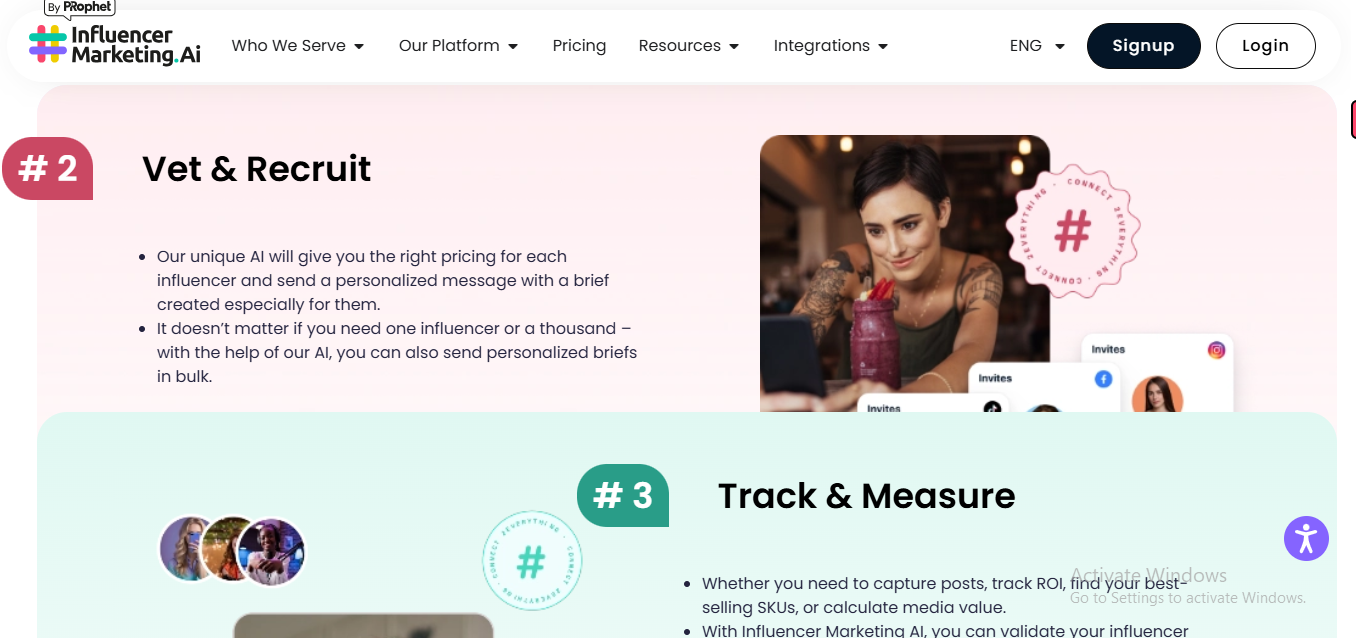
Pros:
- AI-powered insights! 🧠 The platform uses cutting-edge AI to match brands with influencers who are the perfect fit. It’s like having a personal assistant do all the hard work for you.
- Analytics that actually matter! Get deep insights into campaign performance, audience engagement, and ROI.
- Influencer search is super intuitive. You can find influencers by niche, audience, location, and more.
Cons:
- It’s not exactly the cheapest out there, so it might feel like a stretch for smaller businesses.
- The AI can sometimes be a bit too on the nose. Like, it’s almost too perfect in predicting the best matches.
Price: Starts at $100/month. It’s a bit premium, but if you’re serious about influencer marketing, it’s worth checking out.
Why it’s dope: The AI tech is the real MVP here. Plus, the analytics are solid, so you can actually measure your campaigns properly.
26. Traackr
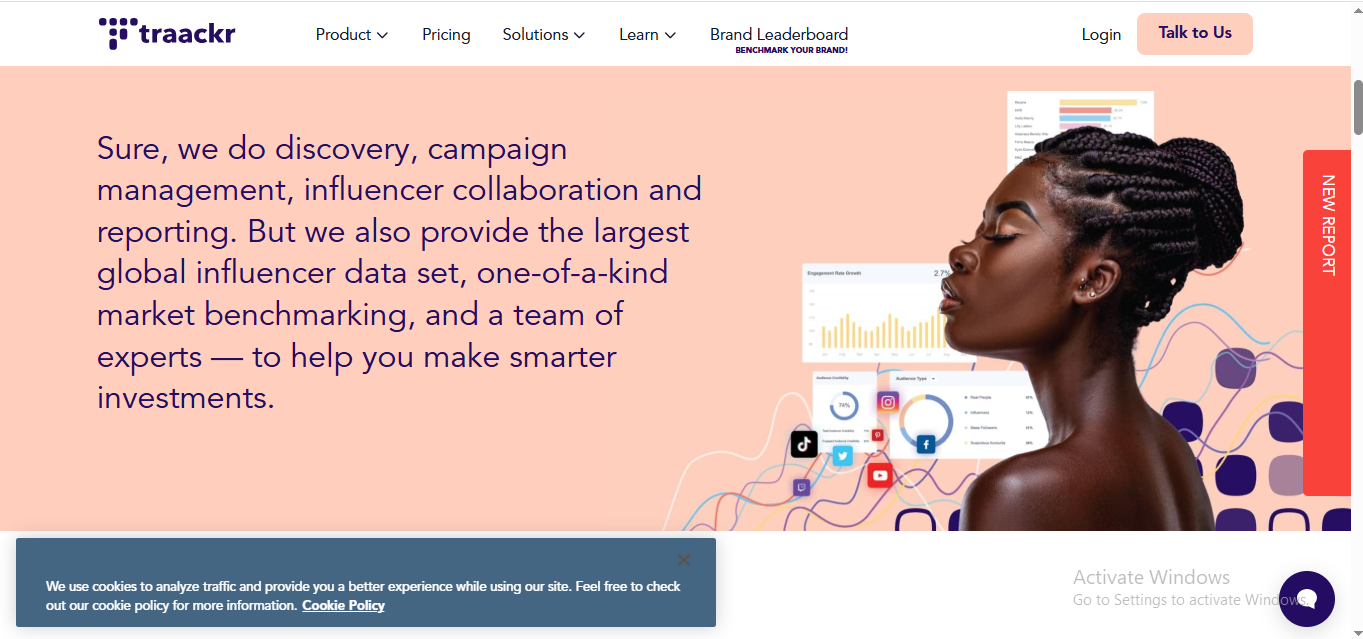
Pros:
- Global database of influencers. No matter your niche or region, you’ll find someone who fits.
- Campaign tracking is a breeze. You get to see how your campaign is performing in real-time. Can’t beat that.
- Influencer performance ratings give you an edge. You can see which influencers have the best engagement rates before you make a deal.
Cons:
- It can get a little pricey, especially for startups or small brands.
- The interface could use a little work. It’s not bad, but it’s not as user-friendly as some other platforms.
Price: Traackr’s pricing is custom, but expect to pay around $500+ per month depending on what features you need.
Why it’s dope: The global reach and ability to track influencers’ performance makes this platform a solid pick for anyone serious about influencer marketing.
27. Upfluence
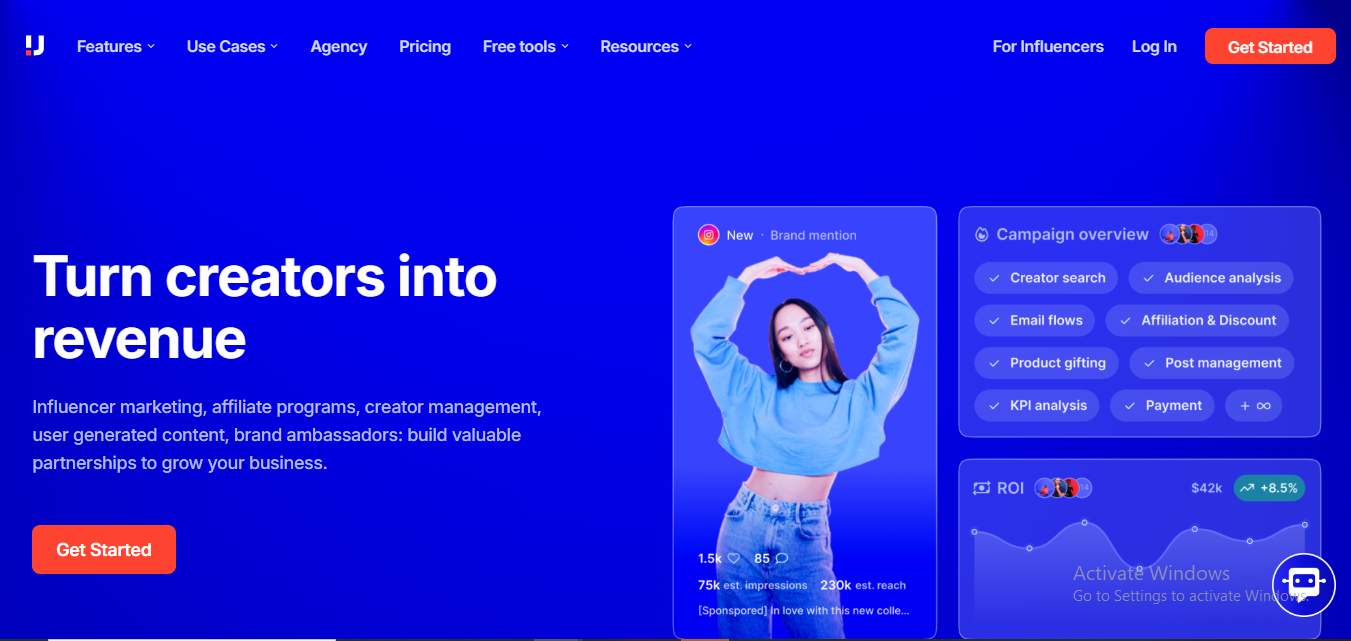
Pros:
- All-in-one platform. From influencer discovery to campaign management, Upfluence has it all.
- You can track ROI easily, and their analytics tools are on point.
- It’s great for e-commerce brands looking to collaborate with influencers who are already in their niche.
Cons:
- Pricing can be a little steep, especially if you’re just starting out or have a smaller budget.
- The tool can sometimes feel overwhelming with all its features. It’s a lot to take in at once.
Price: Pricing starts at $79/month, but for all the bells and whistles, you’ll probably be looking at something closer to $299/month.
Why it’s dope: If you’re an e-commerce brand and need influencer partnerships that convert, Upfluence is hard to beat.
28. Meltwater
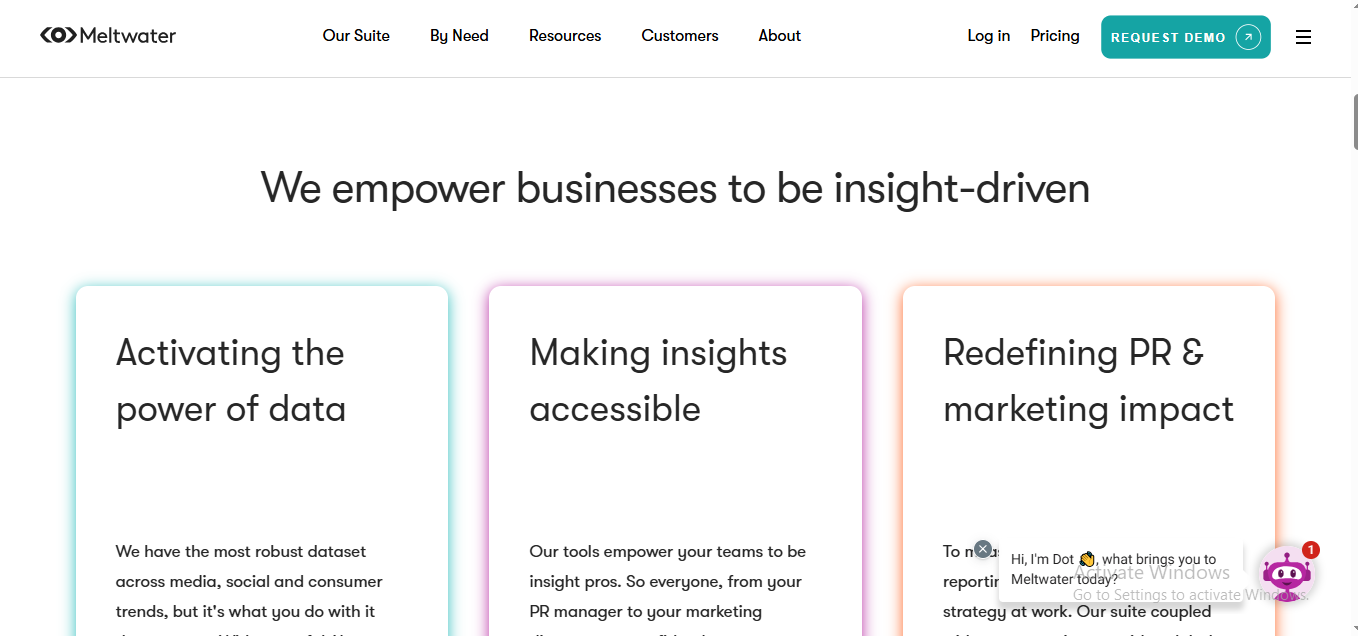
Pros:
- Comprehensive platform that offers more than just influencer marketing. You also get media intelligence, PR tools, and more.
- Great for big campaigns. If you’re working on something massive and need to scale quickly, Meltwater is a solid option.
- In-depth analytics to measure campaign success. You’ll get everything you need to optimize in real-time.
Cons:
- The price is pretty high, which means this platform is more suited to larger companies.
- You might find it a bit too corporate. It’s not as casual as some of the other platforms out there.
Price: Starts at around $1,000/month. Definitely on the higher end of the spectrum, so it’s better suited to larger companies with a budget to match.
Why it’s dope: Meltwater is for those who need a more holistic approach to influencer marketing, with powerful analytics and additional PR tools to boot.
29. The Social Cat
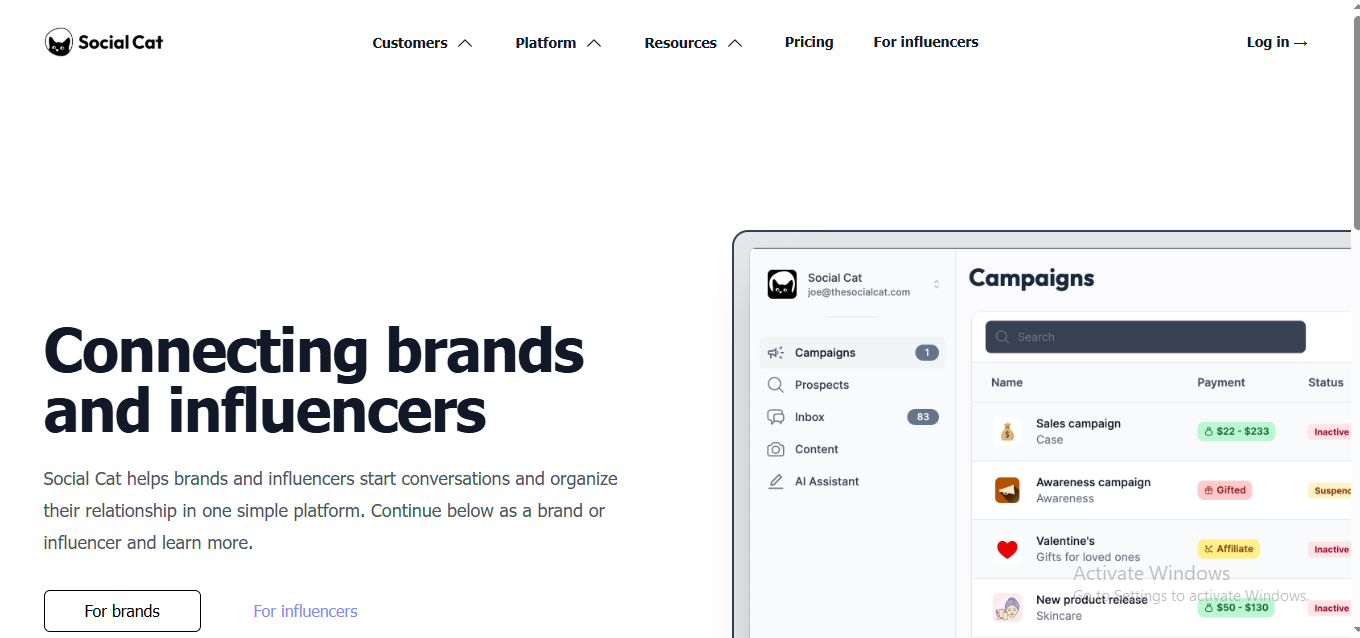
Pros:
- Super easy to use, especially for beginners.
- Offers a nice variety of influencers from different niches. Whether you’re into beauty, fashion, or tech, they’ve got you covered.
- Affordable. It’s a budget-friendly option for brands that want to dip their toes into influencer marketing.
Cons:
- The platform doesn’t have as many advanced features as some of the bigger players.
- It can be a bit limited when it comes to tracking ROI or campaign performance.
Price: Starts at just $19/month, making it super accessible for small brands or businesses just getting started with influencer marketing.
Why it’s dope: If you’re a small business or a brand that’s just starting to explore influencer marketing, The Social Cat is an affordable, no-fuss option.
Conclusion
So, there you have it, fam—29 amazing alternatives to The Cirqle for 2025. Each platform brings something unique to the table, whether it’s advanced analytics, influencer discovery, or ease of use. When choosing the right one for you, think about your budget, your campaign needs, and what kind of user experience you prefer.
If you’re just getting started, platforms like HashtagPaid or Lolly might be your best bet. But if you’re running a large operation, platforms like Mavrck or GRIN could help you take things to the next level.
- Meaning, Origin And History Of The Name Ginka - April 27, 2025
- Best Leadzai Alternatives for 2025 - April 25, 2025
- Best GetProspect Alternatives for 2025 - April 25, 2025

